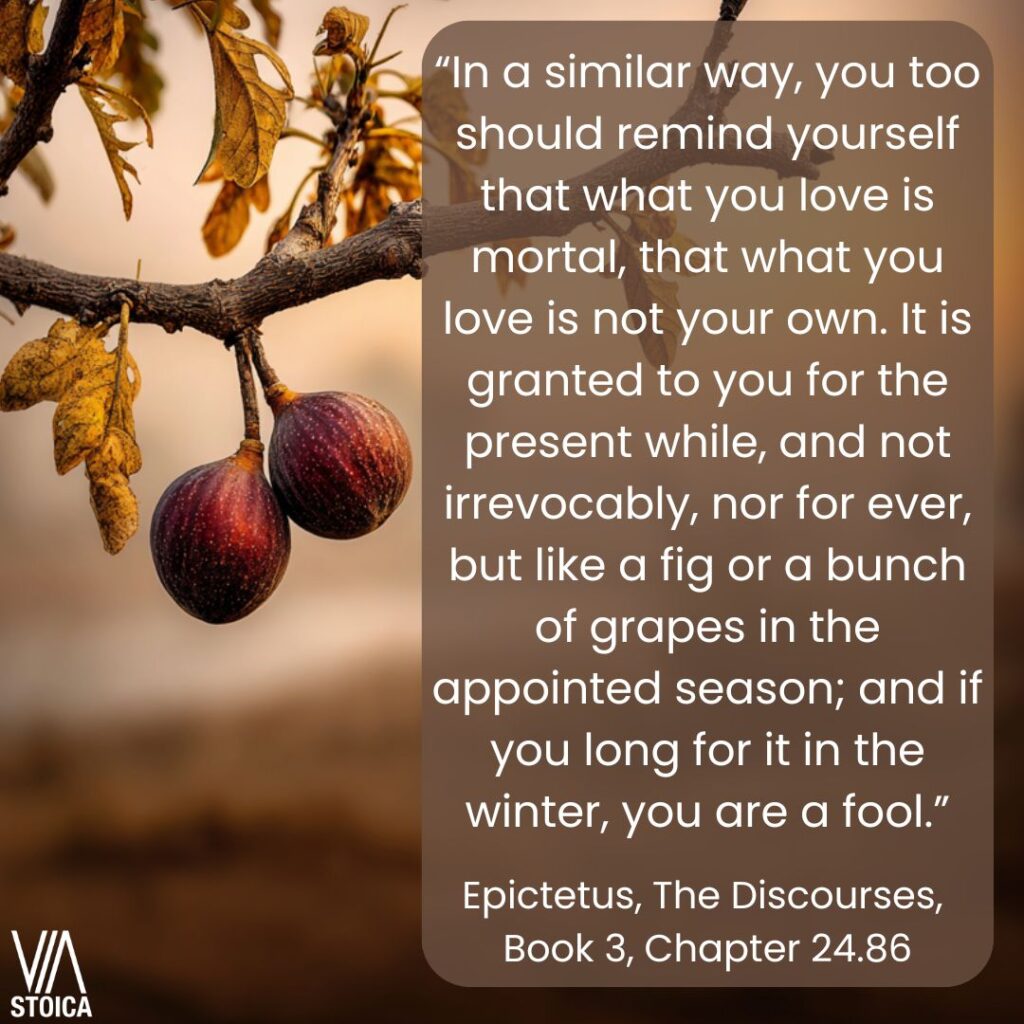“In a similar way, you too should remind yourself that what you love is mortal, that what you love is not your own. It is granted to you for the present while, and not irrevocably, nor for ever, but like a fig or a bunch of grapes in the appointed season; and if you long for it in the winter, you are a fool.”
Epictetus, The Discourses, Book 3, Chapter 24.86

Everything we love, no matter how beautiful or meaningful, is on loan from the universe.
Epictetus uses a metaphor that many Stoics love to use, the one of fruit in season, to illustrate the Stoic view on impermanence. What we love is not ours. It is given to us for a moment, and only for a moment. The fool, he says, is the one who longs for it when it is gone.
This passage is not a call to emotional coldness. It is an invitation to wisdom a gratitude. Stoicism doesn’t ask us to stop loving, but to love without illusion and in the present. To recognize the temporary nature of all external things and to train ourselves to accept their passing with grace. The Stoic message often seems morbid and grim, but it is a call for gratitude and attention when loved ones are with us.
Reflections on the Stoic View on Impermanence
- Savor the present without clinging
When we know something won’t last, we value it more deeply. Stoicism asks us to enjoy things in their season, relationships, moments, and places, without demanding permanence. - Let go when the season ends
Longing for what has passed is a form of resistance to nature. According to the Stoic view on impermanence, peace comes not from holding on, but from releasing gently. - Anchor your identity in what cannot be taken
Your character, your choices, your reasoning, these are your true possessions. Everything else is borrowed and will return to where it came from.
This isn’t just philosophical comfort. It’s a daily practice. A way of seeing life clearly and responding with presence instead of attachment. When we accept the rhythm of life, we move with it, not against it.
FAQ Section
What is the Stoic view on impermanence?
Stoics believe that all external things are temporary and beyond our control. True peace comes from accepting their passing without resistance or attachment.
Why does Epictetus compare love to seasonal fruit?
He uses the image to show that longing for something outside its time is irrational. Like grapes in winter, some things are meant only for a season.
How can I apply the Stoic view on impermanence in everyday life?
By appreciating things as they are now, letting go when they pass, and focusing on what is yours, your thoughts, choices, and character.
Want to explore more Stoic strategies?
Book a free consultation with one of our Stoic Coaches or read more on the Epictetus Quotes page. You can also listen to the Via Stoica podcast on Spotify or Apple Podcasts or watch it on YouTube.



0 Comments